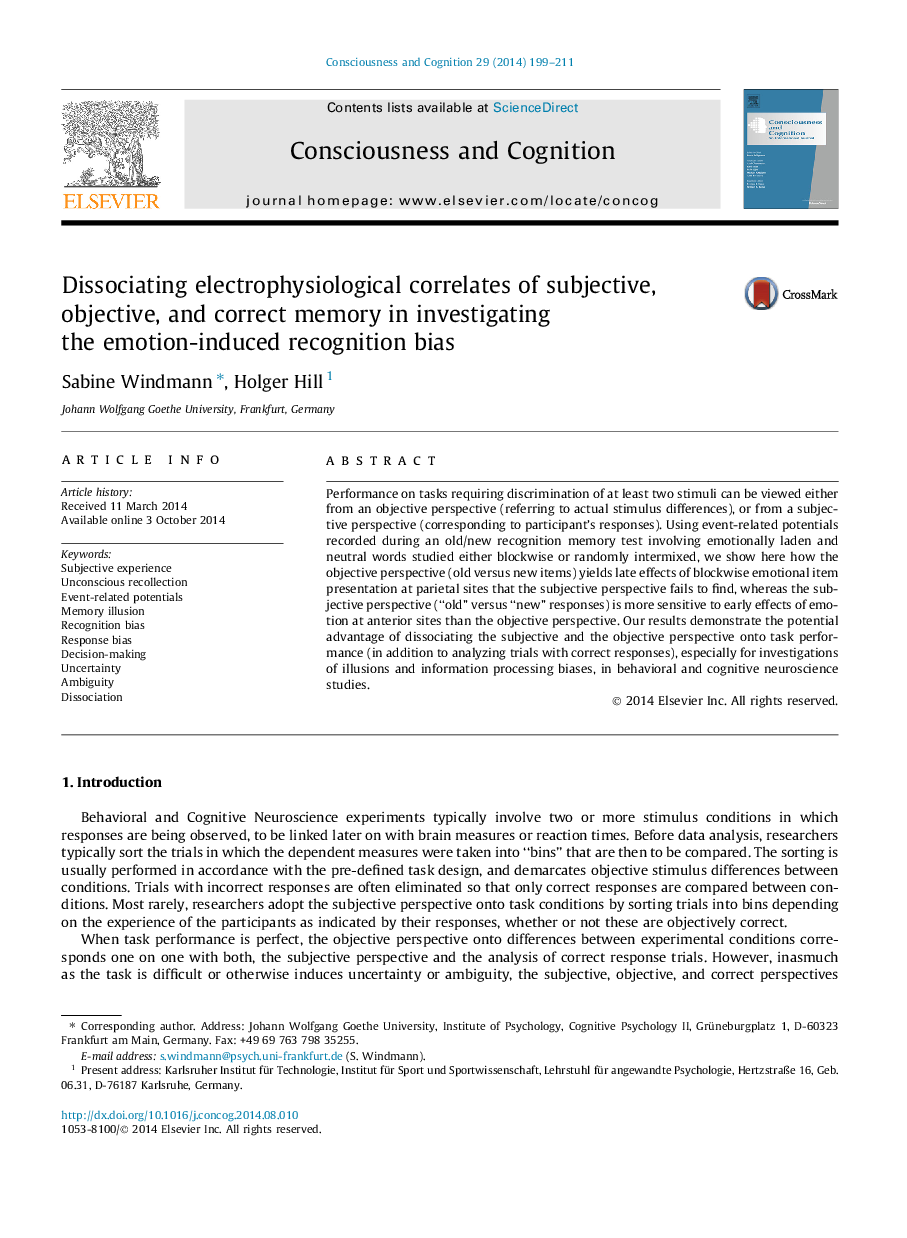| Article ID | Journal | Published Year | Pages | File Type |
|---|---|---|---|---|
| 7289868 | Consciousness and Cognition | 2014 | 13 Pages |
Abstract
Performance on tasks requiring discrimination of at least two stimuli can be viewed either from an objective perspective (referring to actual stimulus differences), or from a subjective perspective (corresponding to participant's responses). Using event-related potentials recorded during an old/new recognition memory test involving emotionally laden and neutral words studied either blockwise or randomly intermixed, we show here how the objective perspective (old versus new items) yields late effects of blockwise emotional item presentation at parietal sites that the subjective perspective fails to find, whereas the subjective perspective (“old” versus “new” responses) is more sensitive to early effects of emotion at anterior sites than the objective perspective. Our results demonstrate the potential advantage of dissociating the subjective and the objective perspective onto task performance (in addition to analyzing trials with correct responses), especially for investigations of illusions and information processing biases, in behavioral and cognitive neuroscience studies.
Keywords
Related Topics
Life Sciences
Neuroscience
Cognitive Neuroscience
Authors
Sabine Windmann, Holger Hill,
